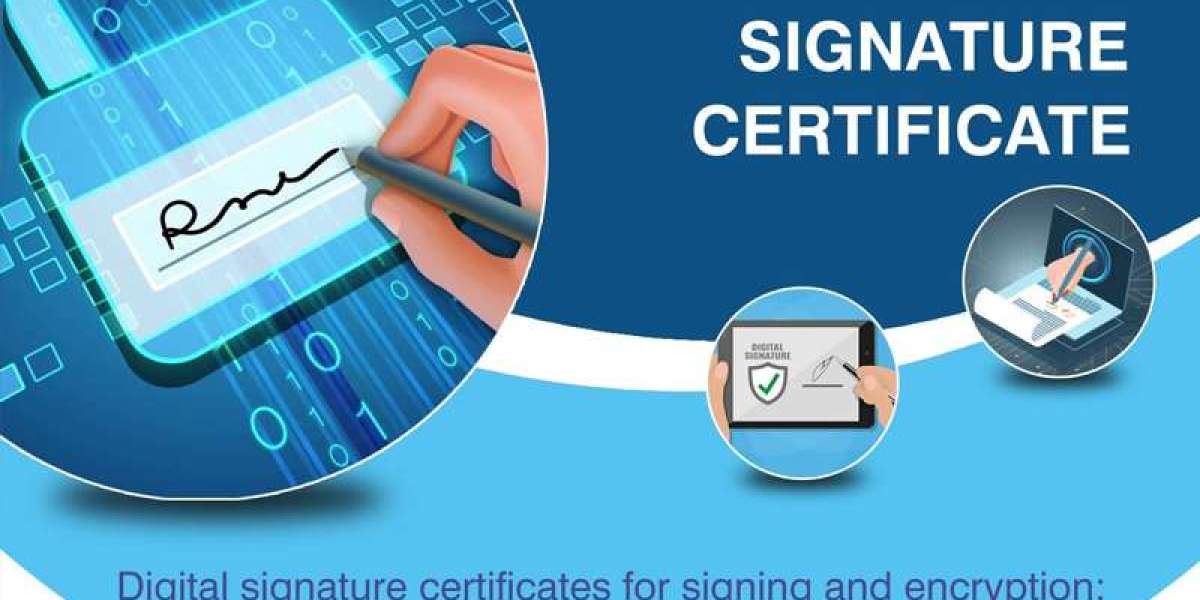In today's digital era, securing online transactions and communications has become a paramount concern. As cyber threats grow more sophisticated, ensuring the authenticity and integrity of your digital interactions is crucial. This is where digital signature certificates come into play. They are essential tools for verifying the identity of individuals and organizations and ensuring that online data remains secure. In this blog, we'll explore the pivotal role of digital signature certificates in enhancing online security and why opting for digital signature certificates online can be a game-changer for your business and personal transactions.
What Are Digital Signature Certificates?
Digital signature certificates are electronic credentials that authenticate the identity of individuals or entities in digital communications and transactions. They use encryption technology to provide a secure way to sign documents and verify the integrity of the data being exchanged. Essentially, a digital signature is a cryptographic technique that ensures a document or transaction is genuine and has not been tampered with during transmission.
When you apply for digital signature certificates online, you receive a unique digital key, which is used to create a digital signature. This digital signature is then attached to your electronic documents or transactions, confirming that they are from you and have not been altered.
How Digital Signature Certificates Enhance Online Security
1. Authentication and Verification
Digital signature certificates provide a robust mechanism for verifying the identity of individuals or organizations. When you sign a document with a digital signature, it confirms that the document has been signed by the legitimate owner of the digital certificate. This helps prevent identity theft and fraud, as only the certificate holder can produce a valid digital signature.
2. Integrity of Data
One of the most significant benefits of digital signature certificates is their ability to ensure data integrity. When a document is signed with a digital signature, any modification to the document after signing will invalidate the signature. This guarantees that the content of the document remains unchanged and has not been tampered with during transmission.
3. Non-Repudiation
Digital signature certificates provide non-repudiation, which means that once a document is signed, the signer cannot deny their involvement. This feature is crucial for legal and financial transactions where accountability is essential. Non-repudiation ensures that the signer's commitment to the document or transaction is unequivocal and can be verified if disputes arise.
4. Enhanced Security for Online Transactions
In the digital age, online transactions are prone to various security threats, including data breaches and cyberattacks. Digital signature certificates add an extra layer of security to online transactions by encrypting the data, making it difficult for unauthorized parties to access or alter it. This encryption ensures that sensitive information, such as financial details or personal data, is protected during online exchanges.
5. Streamlined Workflow and Reduced Paperwork
Adopting digital signature certificates allows businesses and individuals to transition from paper-based processes to digital workflows. This not only speeds up the approval and signing process but also reduces the risk of lost or misplaced documents. By integrating digital signature certificates online, you can efficiently manage and store digital records, streamlining your operations and reducing the environmental impact of paper use.
6. Regulatory Compliance
Many industries and jurisdictions require the use of digital signatures to comply with legal and regulatory standards. For instance, e-commerce, finance, and healthcare sectors often mandate the use of digital signature certificates to ensure compliance with data protection and privacy regulations. By using digital signature certificates online, you align your practices with these requirements and avoid potential legal issues.
How to Obtain Digital Signature Certificates Online
Obtaining digital signature certificates online is a straightforward process. Here’s a step-by-step guide:
- Choose a Certifying Authority: Select a reputable certifying authority (CA) that offers digital signature services. Ensure that the CA is recognized and accredited by relevant authorities.
- Submit an Application: Complete the application form provided by the CA. You’ll need to provide personal or business details, including proof of identity and address.
- Verification Process: The CA will verify your credentials and documents. This process may include identity checks and document validation.
- Receive Digital Signature Certificate: Once your application is approved, you will receive your digital signature certificate. Install the certificate on your computer or device as instructed by the CA.
- Start Using Your Certificate: Begin using your digital signature certificate to sign documents and perform secure online transactions.
Conclusion
Incorporating digital signature certificates into your digital processes is a critical step toward enhancing online security. By providing authentication, ensuring data integrity, and enabling non-repudiation, digital signature certificates safeguard your digital communications and transactions against fraud and tampering. Opting for digital signature certificates online simplifies the process, making it easier to secure your digital interactions efficiently. As cyber threats continue to evolve, embracing digital signature technology is not just a matter of convenience but a necessity for maintaining robust online security.








